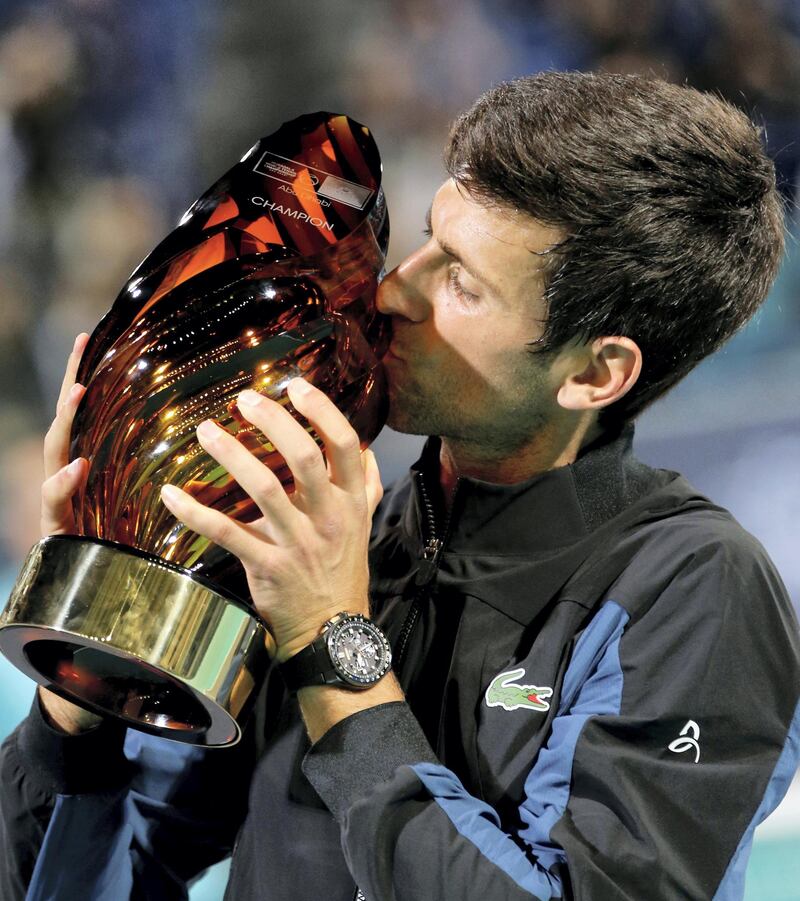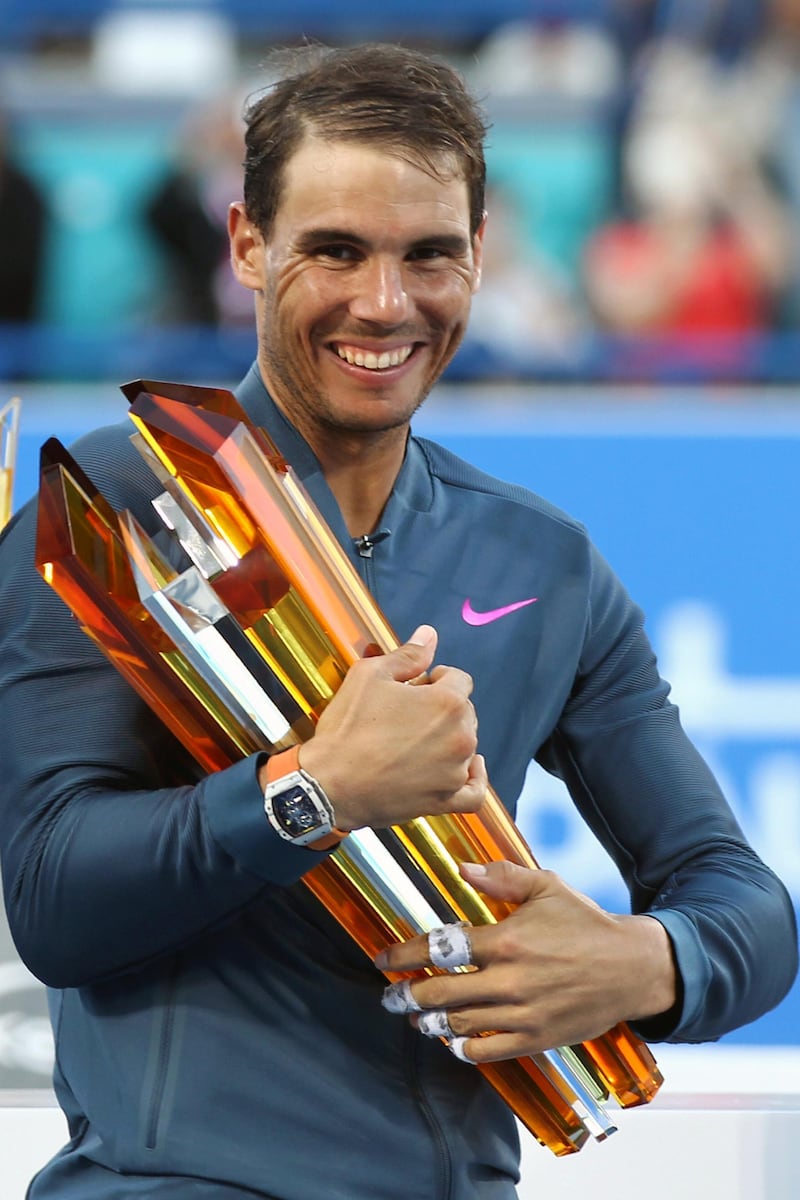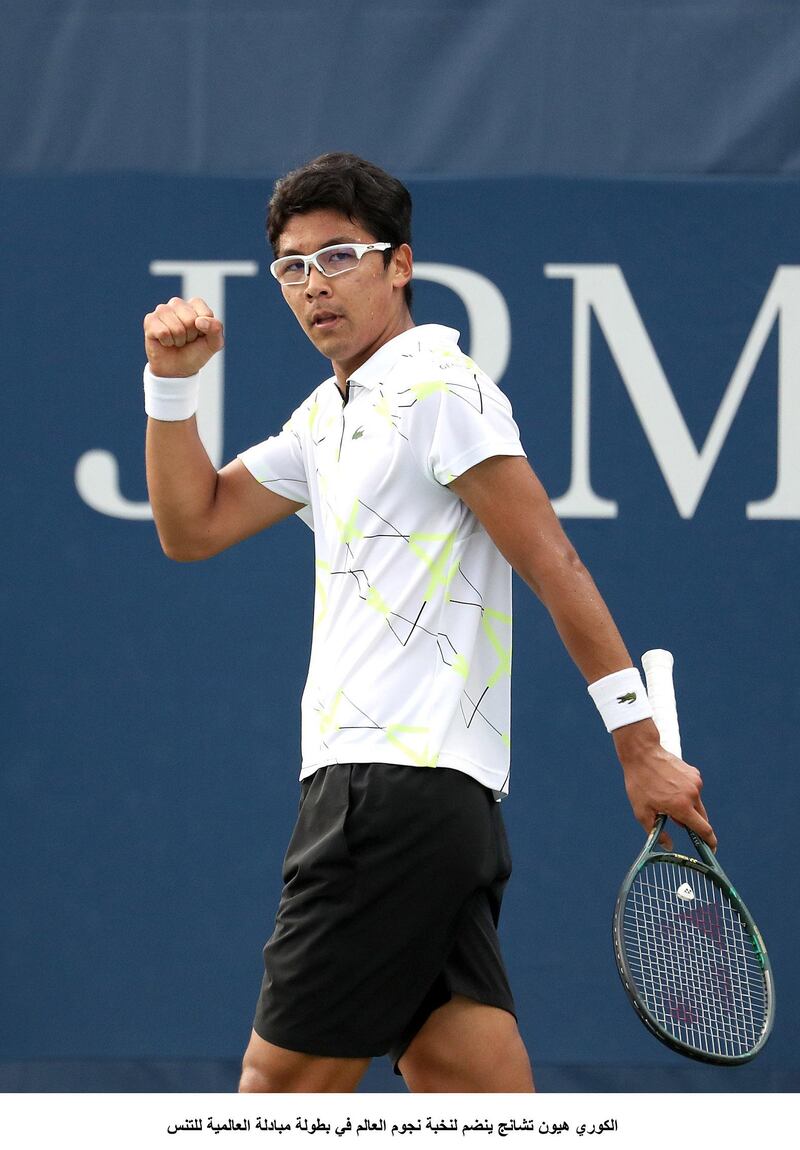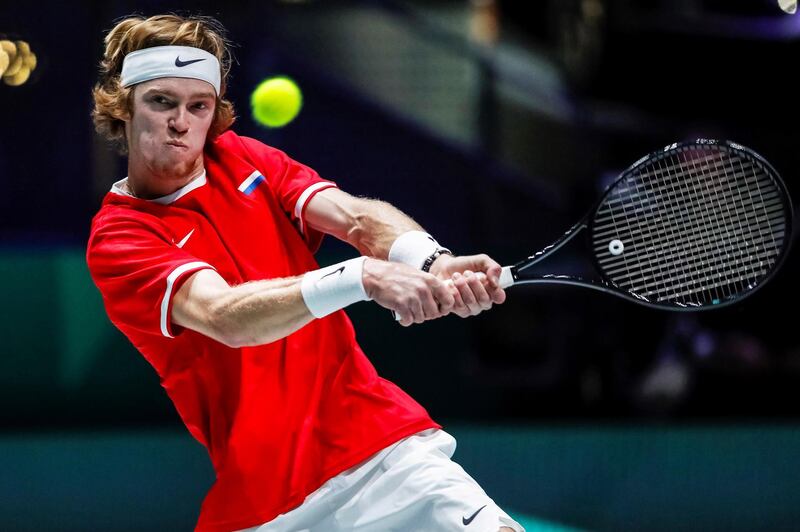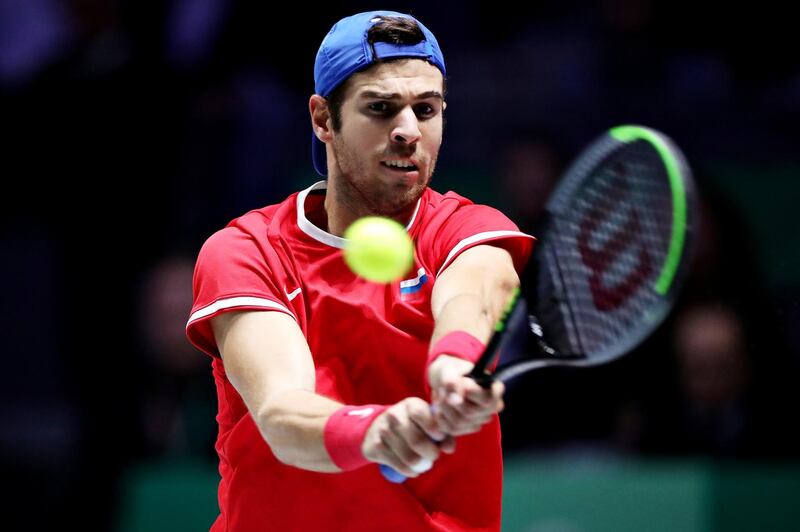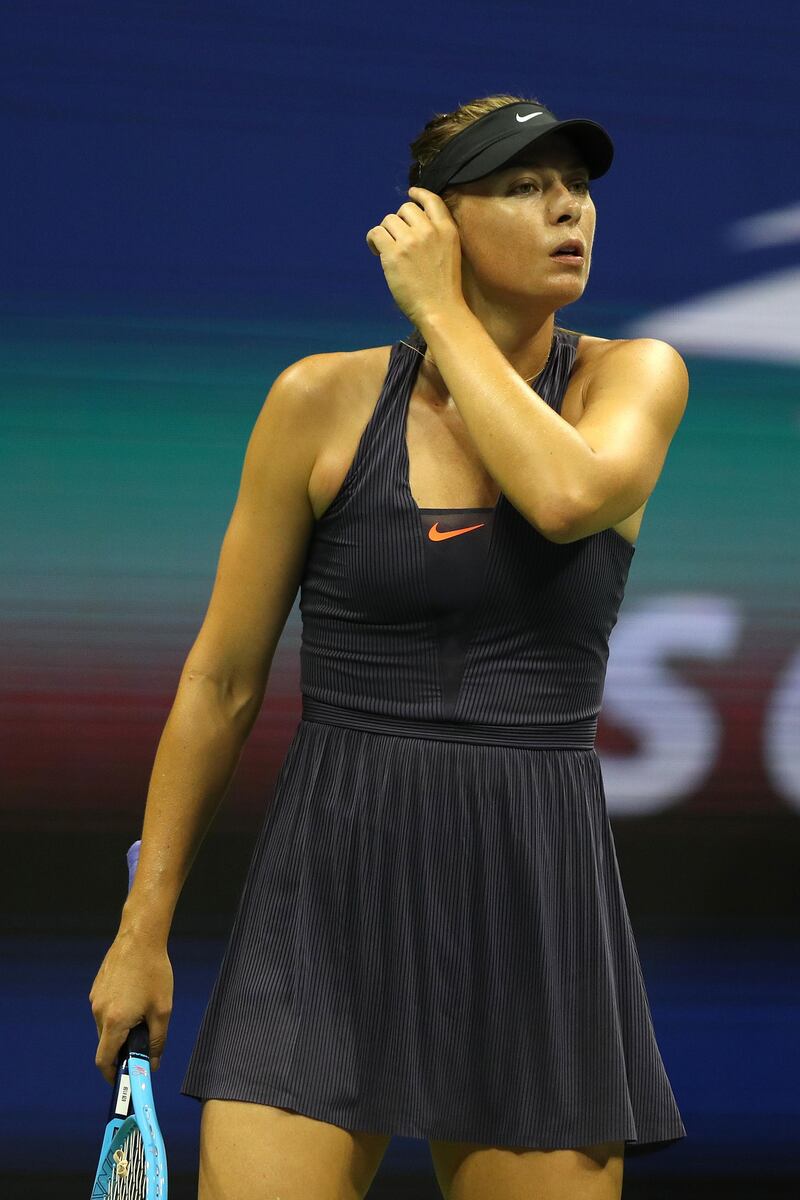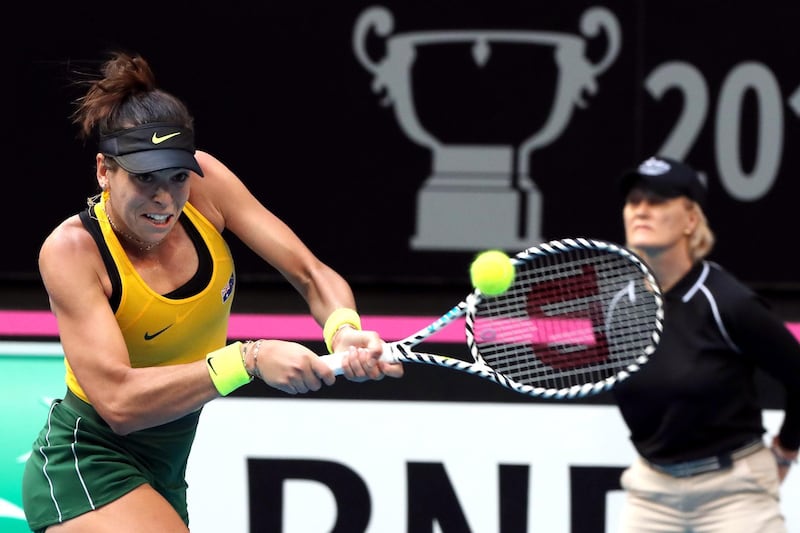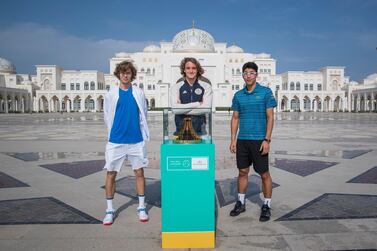Stefanos Tsitsipas is not your typical 21-year-old professional tennis player. In fact, he is neither a typical 21-year-old nor a typical professional tennis player.
When he is not toppling titans on the court – in 2019 he beat Rafael Nadal (on clay), Novak Djokovic and Roger Federer, twice – Tsitsipas can often be found busy at work on his YouTube channel. There, his 170,000 followers are treated to a mix of travel vlogs, match highlights, motivational videos, and some general on-camera musings.
From his videos and by speaking to him in person, it is clear Tsitsipas places great emphasis on the philosophical, encouraging personal development and growth within himself and others. It is what motivated him to create a recent video titled “Fear of Rejection” – a 10-minute look at the emotional and psychological effects of “rejection sensitivity”.
“It is a thing I struggled with when I was very young,” Tsitsipas said at the media day for the Mubadala World Tennis Championship. “I know that many players want to show they’re cool or – and I don’t like to use this word but – ‘macho’.
“I also see the human element in me which I want to give to others and to show it different ways. So, for me the video is educational. I created the whole thing: I did all the editing, I made all the appointments, skype calls, interviews, so I’m very happy with the outcome of the movie.
“I’m proud of myself because I spread the word to people who might have the same fear that I used to have. I don’t have it anymore, because I found ways to overcome it and I want to help others make their lives better.”
Through the process of creating the video, Tsitsipas said he took away many lessons that he not only incorporates into his daily life but can also be implemented into his tennis career.
“[I learnt] to say what I feel – don’t be too diplomatic, be real, be pragmatic in who I am and what I think and who I want to be,” he said. “I feel in today’s world people are very flat and don’t express their creativity much. I want to change that and be a creative person who shares stories my taking photos and videos and showing a better view of our world.”
His approach to being less diplomatic is evident when he discusses his targets for 2020. While many players refuse to be drawn into identifying specific goals, publicly at least, Tsitsipas is refreshingly unambiguous.
“I know many people have been talking about grand slam titles, you cannot avoid it, that is the reality,” he said. “But I understand our tennis era is changing in a way, the top three (Nadal, Djokovic, Federer) are getting older, obviously, and we are the ones that are coming from behind.
“For me, I do have a goal to win a grand slam title next year, that’s for sure, but it’s not a matter of life or death for me. So, my goals are to win a grand slam title, finish inside the top three by the end of the year, qualify for the Nitto [ATP] Finals again and win a Masters 1000.”
Already positioned at world No 6 and having recently won the biggest title of his career so far at the season-ending ATP Finals in London, Tsitsipas is no longer a plucky upstart or feisty contender, but an established member of the tennis elite.
There is, of course, plenty left still to achieve, but the Greek will now have to contend with far great expectations and pressure. Not that it seems to bother him.
“I have been prioritising my enjoyment and how good I feel on the court,” he said. “I think what I have learnt throughout my tennis career is that I don’t need to put too much pressure on myself because then things don’t necessarily work out the way I want them to. My priority is to enjoy, and the rest will follow.”
That level-headed and relaxed attitude will hold him in good standing as his tennis career continues to skyrocket.
“I’m living in the best period of my life with the best people around me, and I really feel this is very important for my balance,” he said.
“I have realised it’s important to keep a really good balance outside of the tennis court, then if things don’t go well on the tennis court, you still have a great approach and lifestyle away from tennis. The balance comes from the outside.”
